Bertha von Suttner was the first woman to win the Nobel Peace Prize in 1905, the other one being Marie Curie who shared the award with her husband.
That made Suttner the first female to receive the award solely and at the same time the first Austrian laureate.
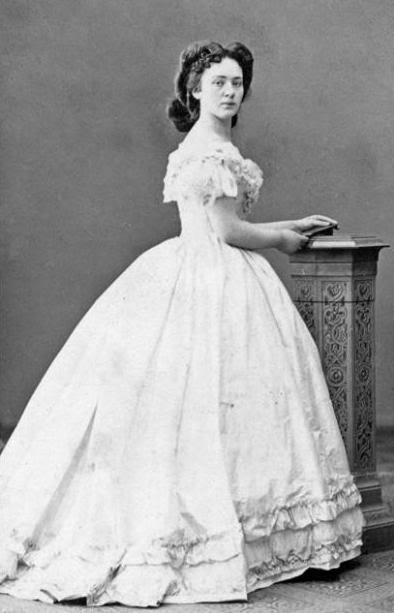
She was born in 1843, in Prague, part of the Austrian Empire at the time. She was raised in an aristocratic spirit but could never be accepted in the high aristocratic circles due to her “unclean” aristocratic pedigree. During her youth, she traveled, studied languages and music and for a period she was pursuing an opera career.
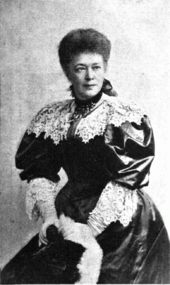
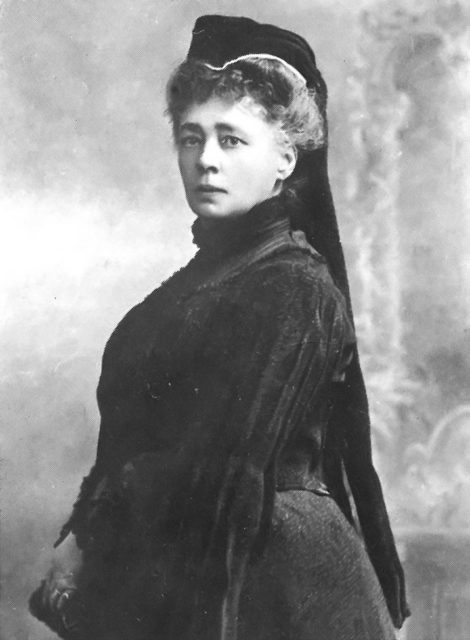
For most of her youth, Suttner lived off her mother’s fortune and she had great tutors and teachers. When she turned thirty, Suttner decided to start a career as a teacher to the girls in her family in Vienna where she met Baron Arthur Gundaccar von Suttner – her future husband.
However, in 1876, she applied for a job position as secretary to Alfred Nobel. After being accepted, she left for Paris. Even though she worked at the position only briefly, she became friends with Nobel. It was speculated that she became Nobel’s love interest but she remained faithful to Arthur and went back to Vienna to marry him. But she remained friends with Nobel until his death in 1896. It is also believed that she convinced Nobel to include the peace prize among the others provided in his will.
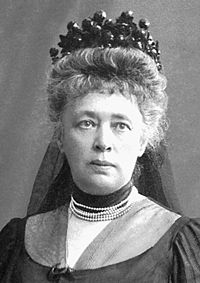
Suttner family was against the marriage, so the couple left for Caucasus in Georgia where they stayed for nine years and gave language and music lessons. They constantly had a financial crisis and debts, but it was a productive time for Bertha who wrote “Es Löwos”, a book about the couple’s life. During this period, she also wrote four novels and her first serious book “Inventory of a Soul” where she argued her ideas about peace in society.
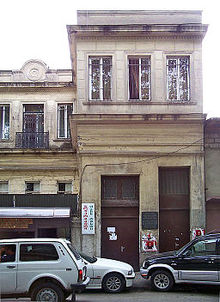
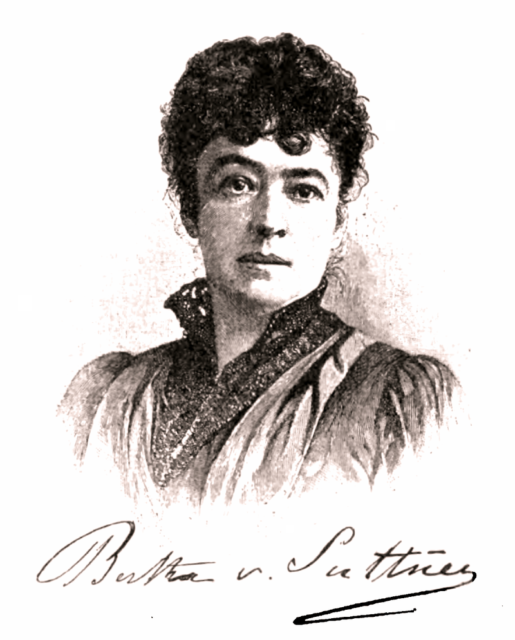
In 1885, after a reconciliation with the Suttner’s family, Bertha and her husband returned to Austria and lived at Harmannsdorf Castle in Lower Austria. While there, Bertha engaged with studies on peace and conflict, corresponding with the French philosopher Ernest Renan and influenced by the International Arbitration and Peace Association founded by Hodgson Pratt in 1880.
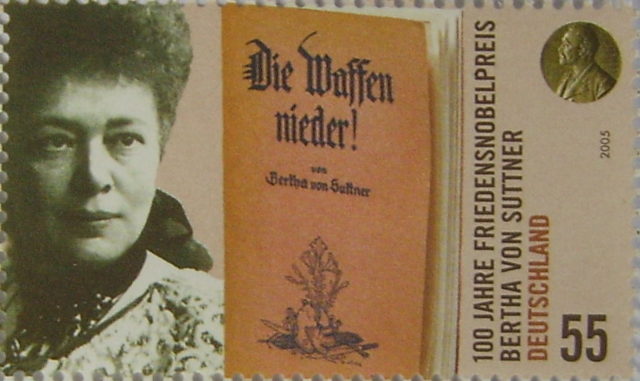
In the next ten years, she got deeply involved in peace movements and dedicated to publishing her writings. In 1889 she wrote her pacifist novel – “Lay Down Your Arms!” which was translated into 12 languages.
By this time, Bertha was already one of the leading figures of the Austrian peace movement. In 1891 she became a chairwoman of the Austrian pacifist organization “Gesellschaft der Friedensfreunde” she established the German Peace Society in the following year.
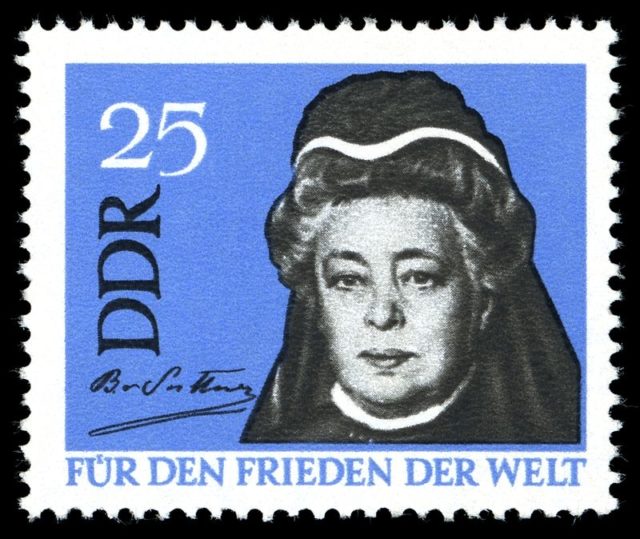
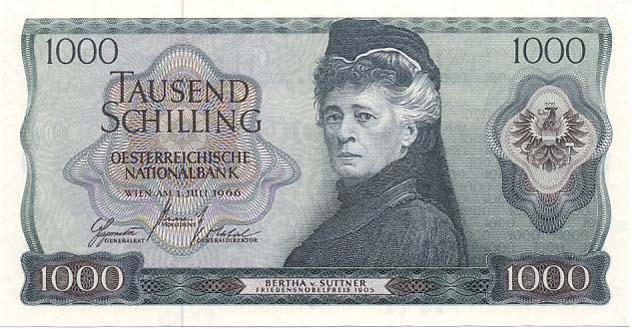
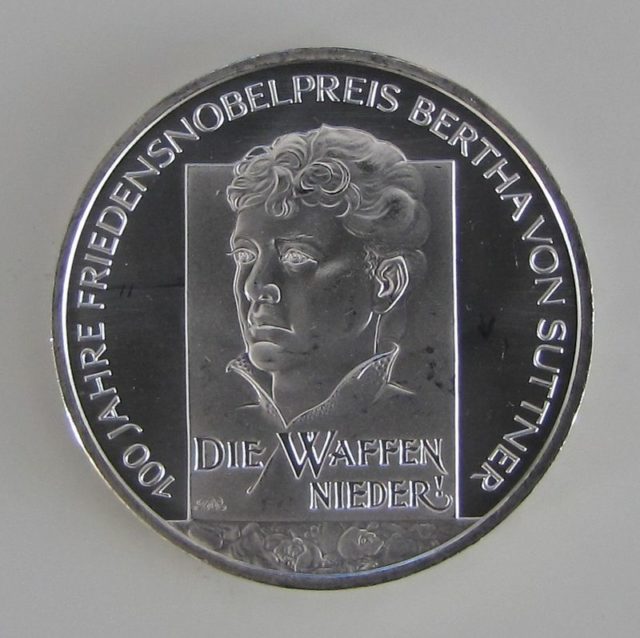
In 1899, Bertha took part in the organization of the First Hague Conventions and in 1904 she traveled across the U.S. for seven months, attending a universal peace congress in Boston and meeting President Theodore Roosevelt.
Read another inspiring story from us: Graca Machel is the only woman to have been first lady of two separate countries
Her husband died in 1902 and she moved to Vienna. In 1905, Bertha received the Nobel Peace Prize. In 1911 she became a member of the advisory council of the Carnegie Peace Foundation. In 1914 before the outbreak of the WWI she died of cancer.